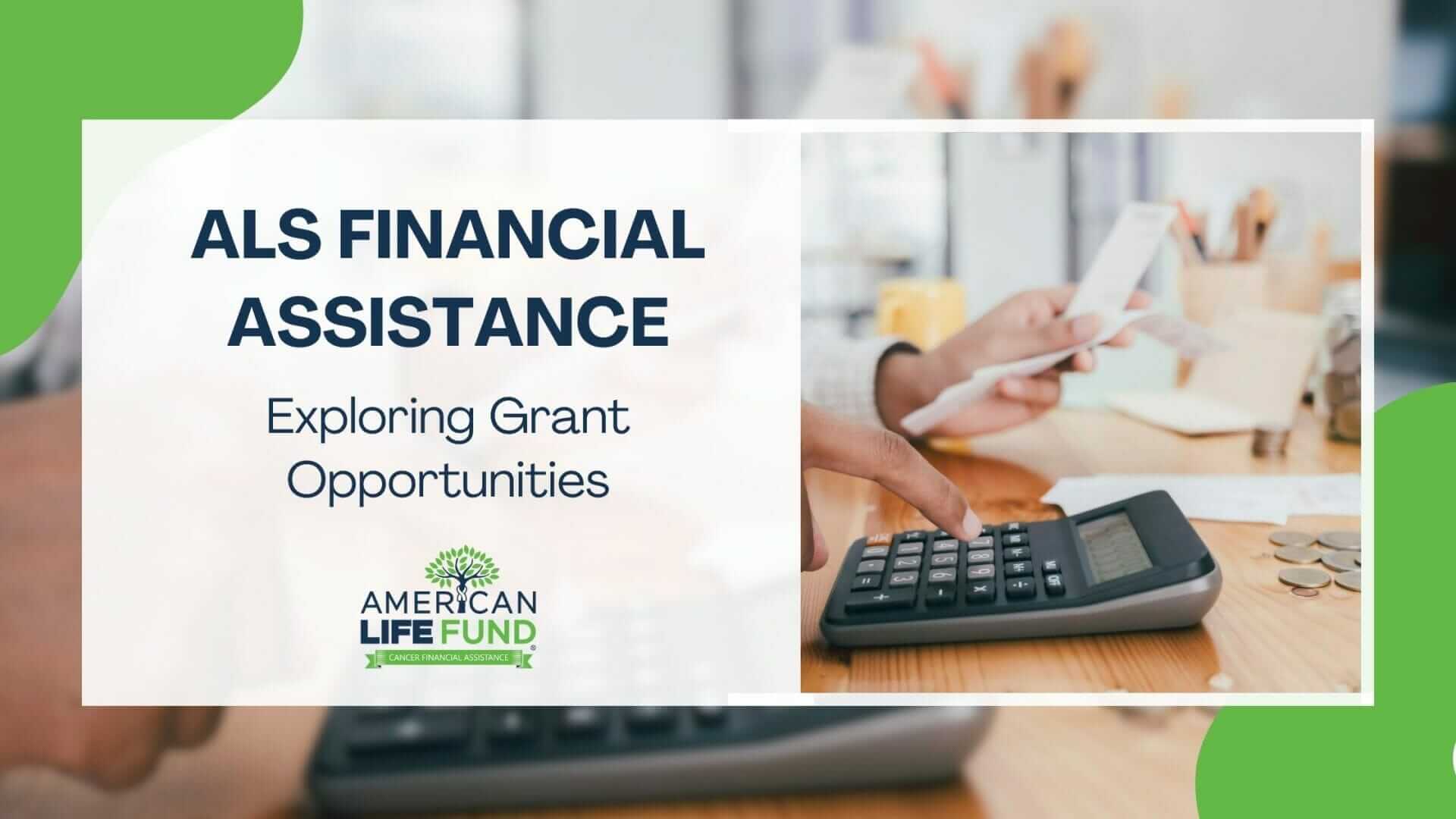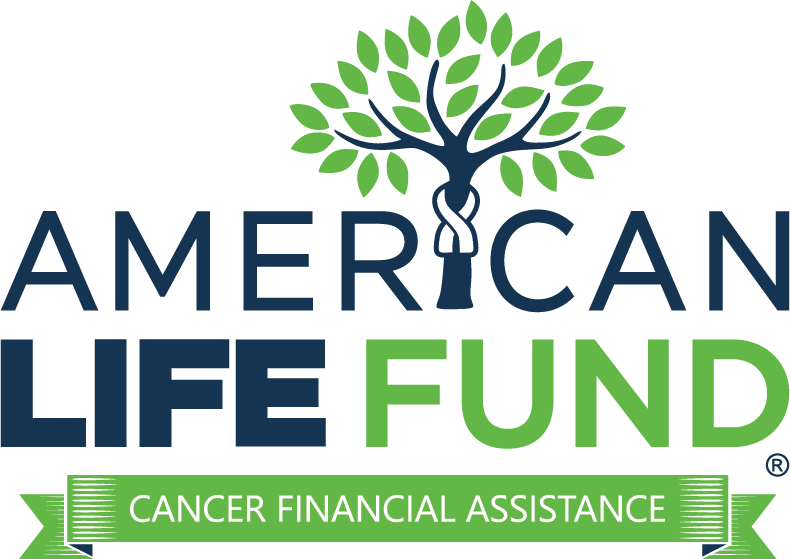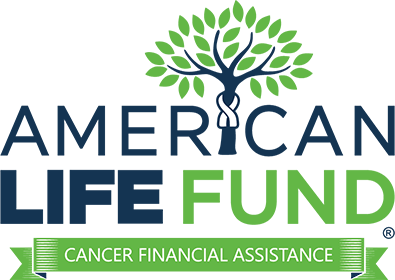Facing an ALS diagnosis is devastating for anyone receiving that news. Not only does it bring emotional and physical challenges, but it also introduces significant financial burdens. If you or a loved one is managing this difficult reality, know that you’re not alone.
At American Life Fund, we understand the immense strain that ALS places on patients and their families. That’s why we’ve put together this guide to financial assistance for ALS patients. In this resource, we’ll cover various financial options, including grants, viatical settlements, government programs, and more. The goal is to help alleviate the monetary strain so you can focus on what truly matters.

What to Expect Financially as an ALS Patient
The costs associated with treating ALS are high, to say the least. The economic burden of a single ALS patient in the U.S. can be as high as nearly $70,000 per year.¹
Unfortunately, even with insurance, the families of those diagnosed with ALS still carry a heavy financial responsibility. The entire cost of ALS care over the diagnosed individual’s lifetime is, on average, nearly $1.5 million.
So, what exactly is included in that nearly $1.5 million figure? In-home caregivers ($669,150), ventilation ($212,430), and hospital care ($114,558) make up the largest portions of the cost.²
While around 85% of the total expense is paid by insurance and 6% is paid by charities, the remaining 9% is the responsibility of the patient’s already struggling family. This doesn’t take into account the time and emotional toll the disease takes, either.³
Financial Challenges Faced by ALS Patients
The progressive nature of the disease often leads to the inability to work, resulting in a loss of income. Additionally, medical bills, prescription medications, and specialized equipment accumulate rapidly. The need for home modifications, caregiving services, and transportation adds to the financial strain. ALS patients usually require some kind of financial assistance to ensure access to quality care and a decent quality of life.
How Viatical Settlements Help ALS Patients
What most people don’t know is that a life insurance policy is considered an asset that you own, meaning insurance policy holders can sell their life insurance for a lump-sum cash payment, also known as a viatical settlement.
With a life insurance viatical settlement, the funds are tax-free and non-regulated, meaning YOU decide how they are spent. Not only can you pay towards your medical expenses, but also towards cost of living expenses, or even a luxurious vacation with your loved ones. As the settlement holder, the freedom and the choice is uniquely yours!
How it works: Unlike life settlements, viatical settlements specifically focus on life insurance policyholders with life-threatening illnesses.
ALS patients with life insurance policies enter agreements with third party buyers to sell their life insurance policy in return for a lump-sum payment. The life settlement company takes over by paying the monthly insurance policy premiums, and receives the death benefit after the seller’s passing.
If you’re considering selling your life insurance policy, we at American Life Fund are here to help. For us, the most important thing is alleviating the financial burden associated with ALS care, reducing stress, and enabling you to spend more time on the things that matter.
Through our hassle-free process, American Life Fund will help you get an immediate cash offer for your insurance policy.
Other Types of Financial Help For ALS Patients
There are a multitude of organizations that offer free money and financial assistance to ALS patients. Take a look at the convenient list of resources we’ve compiled for you below.
Charitable Foundations and Organizations that Help ALS Patients
Charitable foundations work to raise money for ALS research, as well as care for those suffering from the disease. Certain charities and organizations offer financial assistance for ALS patients to help cover treatment costs, including those associated with medical expenses, equipment, and care, as well as living expenses.
Many of these organizations also offer access to service dogs, respite care, transportation, therapy, meal deliveries, and personal hygiene assistance.
The following organizational funds offer financial assistance in the form of grants to ALS patients in need:
- Healthwell ALS Premium Assistance Fund
- Project Main Street Financial Help Fund
- Les Turner ALS Foundation Grants & Equipment Assistance (to qualify, you must attend the Lois Insolia ALS Clinic at Northwestern Medicine)
- ALS Association Financial Assistance Grants (financial grants are dependent on geographic location; click on your local chapter to see what’s available)
- Patient Advocate Co-payment Relief Fund for ALS
- Needymeds (this organization maintains a long running list of financial assistance resources available to ALS patients)
Government Assistance
If you need consistent, ongoing monthly help, there are several government assistance programs available for ALS patients who qualify. Government financial help is an important option when it comes to affording ALS treatment and care.
Programs such as Social Security Disability Insurance (SSDI) offer monthly cash benefits, as long as the person has paid FICA and Medicare taxes. Medicare coverage is also available for those over 65 or those who are eligible for SSDI.
Additionally, Supplemental Security Income (SSI) is an option for those over 65, and pays for food, clothing, shelter, and other basic needs. Medicaid also helps low-income individuals in need of care.
Drug & Equipment Assistance
ALS patients can find help with drug and medical equipment through various resources. Many manufacturers provide supplies at discounted or even free rates, often in collaboration with charitable organizations, insurance, or as part of their own charity initiatives.
By providing a diagnosis, ALS patients can access discounted or free medications and equipment. One resource is Team Gleason, who offers necessary technology, equipment, and services specifically for ALS patients. Additionally, the Muscular Dystrophy Association helps locate local equipment resources for those in need.
Programs like Partnerships for Prescription Assistance (PPA) provide access to free or reduced-cost prescriptions, making it easier for ALS patients to manage their medication needs. Needy Meds is another valuable resource, offering a free Drug Discount Card that can save patients up to 80% on prescription medications.
The Medicine Assistance Tool helps ALS patients find additional financial assistance resources for their prescriptions, guaranteeing they receive the necessary medications without further financial strain.
Final Remarks
While there is currently no cure for ALS, those diagnosed with the disease can still lead fulfilling lives with the right support and financial assistance. Numerous resources are available to help manage the high costs associated with ALS care, from charitable grants and government programs to viatical settlements.
At American Life Fund, we understand the immense financial burden that ALS places on patients and their families. Our goal is to alleviate this stress by providing financial relief through viatical settlements. By selling your life insurance policy, you will receive a lump-sum cash payment to use as you see fit, whether it’s for medical expenses, home modifications, or simply enjoying quality time with your loved ones.
Don’t let financial strain overshadow your life. Take control of your financial future and ensure a better quality of life by reaching out to American Life Fund today. Our dedicated team is here to guide you through the easy application process and help you reclaim your financial freedom.
Frequently Asked Questions
Are ALS patients eligible for disability benefits?
Yes, ALS patients are typically eligible for disability benefits. The Social Security Administration (SSA) recognizes ALS as a qualifying condition for expedited processing under the Compassionate Allowances program. This means you can receive SSDI benefits more quickly, providing essential financial support.
What health insurance options are available for ALS patients?
Aside from private insurance, ALS patients may qualify for government-sponsored health insurance programs like Medicare and Medicaid. Medicare is available to individuals under 65 diagnosed with ALS without the typical waiting period. Medicaid offers additional coverage for low-income individuals and may cover services not included in Medicare.
Do health insurers cover the cost of ALS medications and treatments?
Coverage for ALS medications and treatments varies by insurer and policy. Many health insurers cover FDA-approved ALS medications like Riluzole and Edaravone. It’s important to work closely with your healthcare provider and insurer to obtain prior authorizations and understand your benefits.
How can I obtain durable medical equipment for ALS care?
Durable medical equipment (DME) such as wheelchairs, communication devices, and breathing apparatuses are essential for ALS patients. You can acquire DME through:
- Insurance Coverage: Many health insurance plans, including Medicare and Medicaid, cover DME if prescribed by a doctor.
- Charitable Organizations: Groups like the Muscular Dystrophy Association and ALS Association offer equipment loan programs or grants.
- State Assistive Technology Programs: These programs provide access to equipment loans and financial assistance for purchasing DME.
What charitable organizations offer financial help to ALS patients?
Several organizations provide financial assistance to ALS patients, including:
- Healthwell ALS Premium Assistance Fund
- Project Main Street Financial Help Fund
- Les Turner ALS Foundation Grants & Equipment Assistance
- Note: Eligibility may require attendance at specific clinics.
- ALS Association Financial Assistance Grants
- Check with your local chapter for available grants.
- Patient Advocate Co-payment Relief Fund for ALS
- NeedyMeds
- Offers a comprehensive list of financial assistance resources.
Can ALS patients receive government assistance?
Yes, ALS patients may qualify for government assistance programs such as SSDI, SSI, Medicare, and Medicaid, which help cover medical and living expenses.
How do viatical settlements benefit ALS patients?
Viatical settlements allow ALS patients to sell their life insurance policies for a lump-sum, tax-free cash payment. This provides immediate financial relief and flexibility to cover medical and living expenses, reducing stress during a challenging time.
Sources:
- The economic burden of a single ALS patient in the U.S, https://pubmed.ncbi.nlm.nih.gov/25924979/#:~:text=Direct%20and%20indirect%20costs%20varied,472%20million%20in%20the%20USA.
- What exactly is included in that nearly $1.5 million figure, https://pubmed.ncbi.nlm.nih.gov/25245119/
- Finding Financial Assistance for ALS Patients





